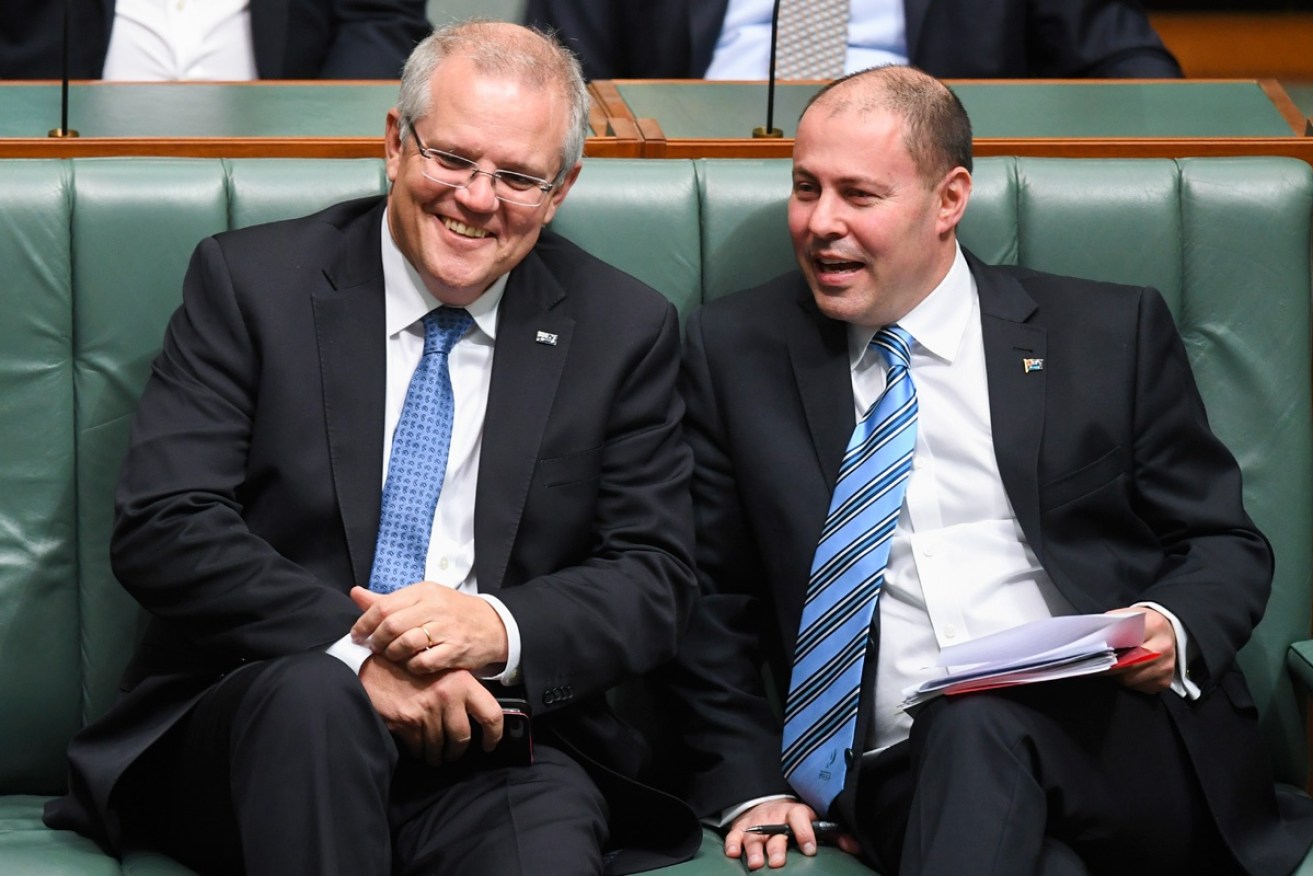‘Misleading and disingenuous’: Treasurer’s negative gearing claims slammed


Scott Morrison and Josh Frydenberg will be hanging their election hopes on the budget. Photo: AAP Photo: AAP
Experts have rubbished Treasurer Josh Frydenberg’s claims that a proposed rollback of negative gearing will decimate the property market and send rents soaring.
In an op-ed published by The Daily Telegraph on Thursday, Mr Frydenberg claimed Labor’s proposed changes to current concessions for property investors “will hurt every Australian” and “smash property values”.
“If you own your own home, it will be worth less. If you rent your home, it will cost you more,” Mr Frydenberg wrote on Twitter.
“[Bill Shorten] must listen to the experts and ditch his big property tax!”
Independent economist and long-time negative gearing scholar Saul Eslake told The New Daily that the Treasurer’s description of the reforms as a “property tax” was “somewhere between misleading and disingenuous”.
“Proposing to scale back tax breaks for investors in property and other assets is not imposing a new tax,” he said.
“Rather, it’s limiting the capacity for people to borrow – in order to acquire assets – and offset the cost of that borrowing against other tax liabilities.”
Mr Eslake described the Treasurer’s claim that “Labor’s property tax will hit 1.3 million Australians who negative gear and every Australian with equity in their home” as “hyperbole”.
“The question that needs to be asked is ‘For whom should we feel more sympathy?’
“People with three to six investment properties, who will see the value of investments decline a bit?
“Or the large number of predominantly younger and growing proportion of middle-aged people unable to get into the housing market because they’re faced with ever-increasing competition from investors?”
Labor’s proposed reforms:
- Negative gearing – a concession that allows property investors to offset losses against their taxable income – would be limited to newly built homes.
- The current capital-gains tax (CGT) discount for investors would be reduced from 50 per cent to 25 per cent.
- The proposed changes would be ‘grandfathered’ in, and therefore have no impact on investors with existing negatively geared properties.
Will home prices crash under the reforms?
The end of historic property price booms in Sydney and Melbourne has seen national home prices decline by 2.7 per cent over the past 12 months.
However, Treasury modelling released earlier this year found that the effect of Labor’s reforms on home values was likely to be mild.
“Changing tax policies will put downward pressure on prices – that’s sort of the idea,” University of Sydney economist and housing expert Peter Phibbs said.
“We have locked a lot of punters out of home ownership because of price growth.”
“The proposed changes “won’t slam the market”, he said.
Wakelin Property Advisory director Jarrod McCabe said that in the short term “we may actually see the market jump in advance of the start date as investors look to lock in the current rules under the grandfathering provisions”.
“In the long term we think the tax policy will be adjusted to and it will be fundamental issues like the state of the economy and population growth that drives the market,” he said.
University of New South Wales City Futures Research Centre fellow Chris Martin said “it would be a good thing for house prices generally to decline”.
“If you own your home, this isn’t going to change what it’s worth to you in terms of the shelter it provides you,” Dr Martin said.
“And if you’re looking at selling and buying another house to live in, the price of the next house will have gone down too.”
Will rents go up?
The claim that renters will pay more should the reforms go through is nonsensical, Mr Eslake said.
“In particular, by grandfathering existing properties Labor will, if anything, discourage those who own existing properties from selling.”
Rather, first-home buyers and “trader-uppers” will “face less competition for existing properties” and have a greater opportunity to gain a foothold in the housing market, Mr Eslake said.
Dr Martin also dismissed the claim.
“On the contrary, negative gearing has contributed to higher rents, because it is part of the reason why more higher-income households are renting longer (ie priced out of owner-occupation), and they’ve bidded up rents,” he said.
“Instead of pushing down rents, negatively gearing pushes house prices higher than what investors would otherwise be prepared to pay for an asset that yields a given rental income.”
Mr McCabe said rents may increase by a “modest amount, say five per cent” as landlords “look to pass some of the costs on to tenants”.
“Landlords’ ability to do this will, in part, depend on the tightness of the rental market that they operate in. Most city rental markets are tight.”








